Ben Howard talks tones, tantrums and orchestral guitars
The singer songwriter on I Forget Where We Were
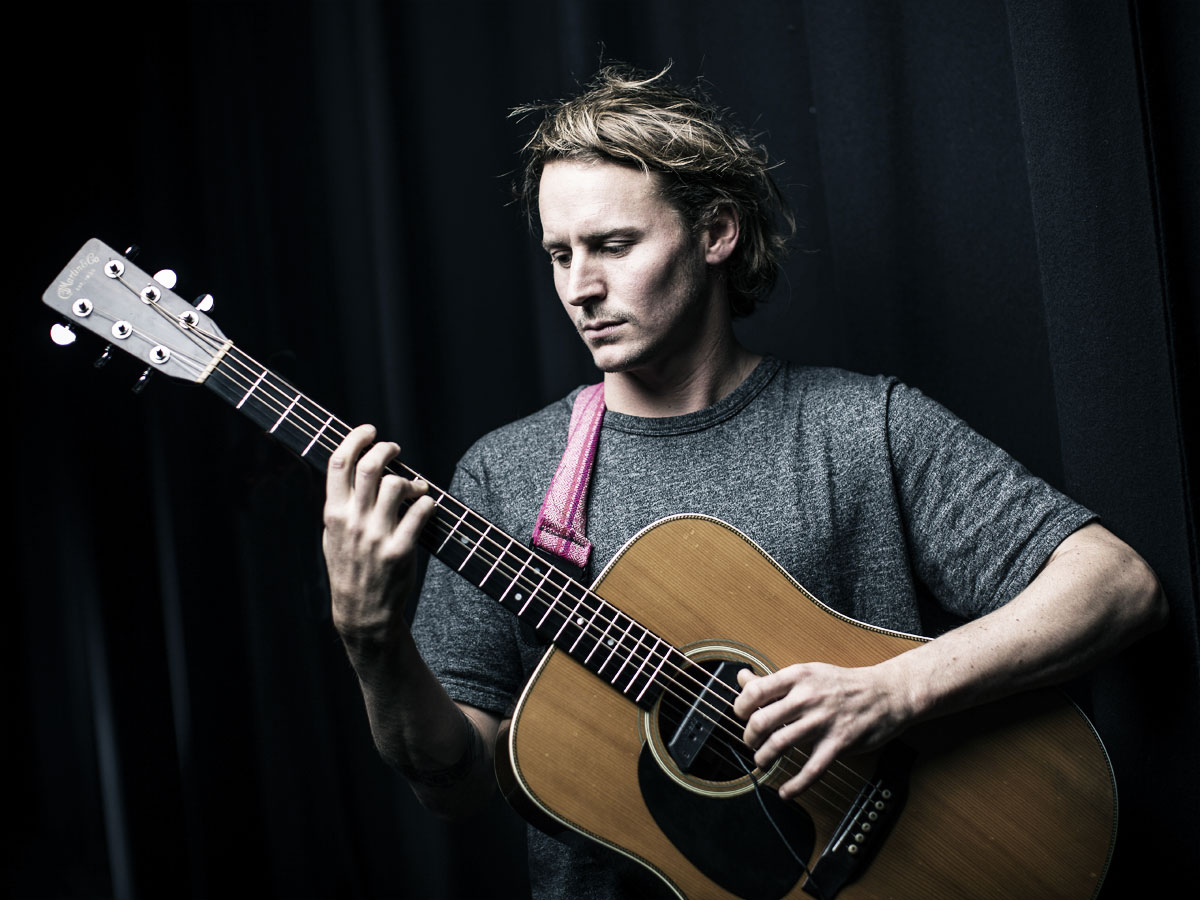
Introduction
When Ben Howard was announced as the winner of two Brit Awards in 2012, Twitter ran awash with cries of ‘WHO IS HE?’ Two years on and no-one asks that question anymore.
Recorded last winter, second album I Forget Where We Were wasted no time in taking the No 1 spot back in October 2014. It’s a darker, noisier and far more experimental collection than the summery fireside folk of Every Kingdom, a record that shakes off numerous type-casts - the Devonshire Jack Johnson, the Mumford-associated folkie, the teen heartthrob - none of which were accurate.
Ben’s (sometimes brutal) honesty has previously got him into hot water with a pop press used to red carpets and well-spun soundbites, and interviews are increasingly rare.
Nonetheless, he granted TG a sit down ahead of his Manchester Apollo show and talked in-depth about handling the spotlight, his rebellious streak and what happens when you wang a guitar amp through a piano...
Is I Forget Where We Were an anxious album?
"It’s definitely evolved into more of a band project, so there’s everyone else’s input into it, as well"
"In many ways. It’s a lot more introverted than the first record, and now I realise it was actually quite mulled-over and quite thought-about, sometimes to its detriment, I think. It was really picked apart but it could have been quite a live, instrumental album with a lot more fury, but I think we - at times - made it quite concise. But in terms of anxious? Yeah, maybe. It breathes in the music. It was a strange winter for all of us... a big season of change."
We know you don’t like talking about your personal life, but do you mean it was a strange time in terms of your personal lives, or literally just the changing of the seasons?
"Well, it’s always a mix of everything, but I think the seasons definitely had a huge impact on everyone’s mood. One thing to be aware of is that it’s definitely evolved into more of a band project, so there’s everyone else’s input into it, as well. I guess, vocally and lyrically, it’s all me, but there were times of real magic where I’d feed everyone with some unsettling things and we would jump on it and explore it, and we made some really interesting music out of it at times."
Do you think part of you was trying to rebel and sabotage your burgeoning pop star status with this record?
"I think there’s a streak of rebellion in me, definitely, but I think more so it was a feeling that we’d engaged with so many people that we felt they would come with us. That I could play some music to kids that maybe they wouldn’t listen to [normally], because we had something in common. At the time, it felt like evolution. The songs are longer, so have a bit of patience, you know? If anything, it’s a slight rebellion, in a tiny way, to get people to sit down and listen to a whole record."

Vindication
Did you feel vindicated when it went to No 1?
"I don’t know how much of that was [momentum from] the first record, but I like the idea that this record went out to a lot of people. It’s not like we’re doing anything vastly different to anyone else - we’re all just fucking making noises and vibrating ear drums. I’m not unaware of that, you know?
"But it is nice playing music that I think has got real intent and is honest in its playing. It’s quite nice to think that [the album] can be [out] among artists that have the musical integrity of... nothing... It’s a hard one, because you can get on your high horse about anything.
"I don’t think we’re any better than anything else, but it’s nice to think that there’s music there that people are listening to - and we made it - and at the time it was something we really enjoyed."
The difference between the two is stark, but both of your albums open with solitary guitar lines. Was that by accident or by design?
"I had to fight quite hard to put End Of The Affair out first - because I felt that if people heard that then they would understand the record"
"That was purely accidental! To put Small Things first, it was just my favourite song on the album... It was the same thing with End Of The Affair, a lot of people thought that I’d released that as a statement of intent - and I had to fight quite hard to put that out first - because I felt that if people heard that then they would understand the record. That they would listen to it as a whole.
"I see those tracks as brother and sister - it’s a really similar guitar [part] on them both. For me, it kind of rounded up the winter and rounded up those songs."
With three guitar players in the studio for recording, how did you decide who was going to play what part?
"We laboured over a lot of the parts. The boys have got a lot of guitar on this as well, so there were a lot of long conversations about what guitar parts fitted in where. A lot of the time when we record, it’s trying to fit stuff around my parts, because they take up so much room. It was really good to go into that, and the boys are so versatile.
"I’ve always said that I’m technically the worst guitarist in the land, whereas Nat [Wasson] and Mickey [Smith] who’ve joined are both phenomenal guitarists. Nat’s played with quite a lot of Manchester bands, like Pete Hook etc, and his knowledge of music is mind-blowing and he’s probably one of the best guitarists in the country.
"So that was always brilliant, me going, ‘Err, can we try and do this…’ Maybe it takes someone like that to figure out where their space is in the music and then Chris and Bear [Bond] are obviously great guitarists as well. "
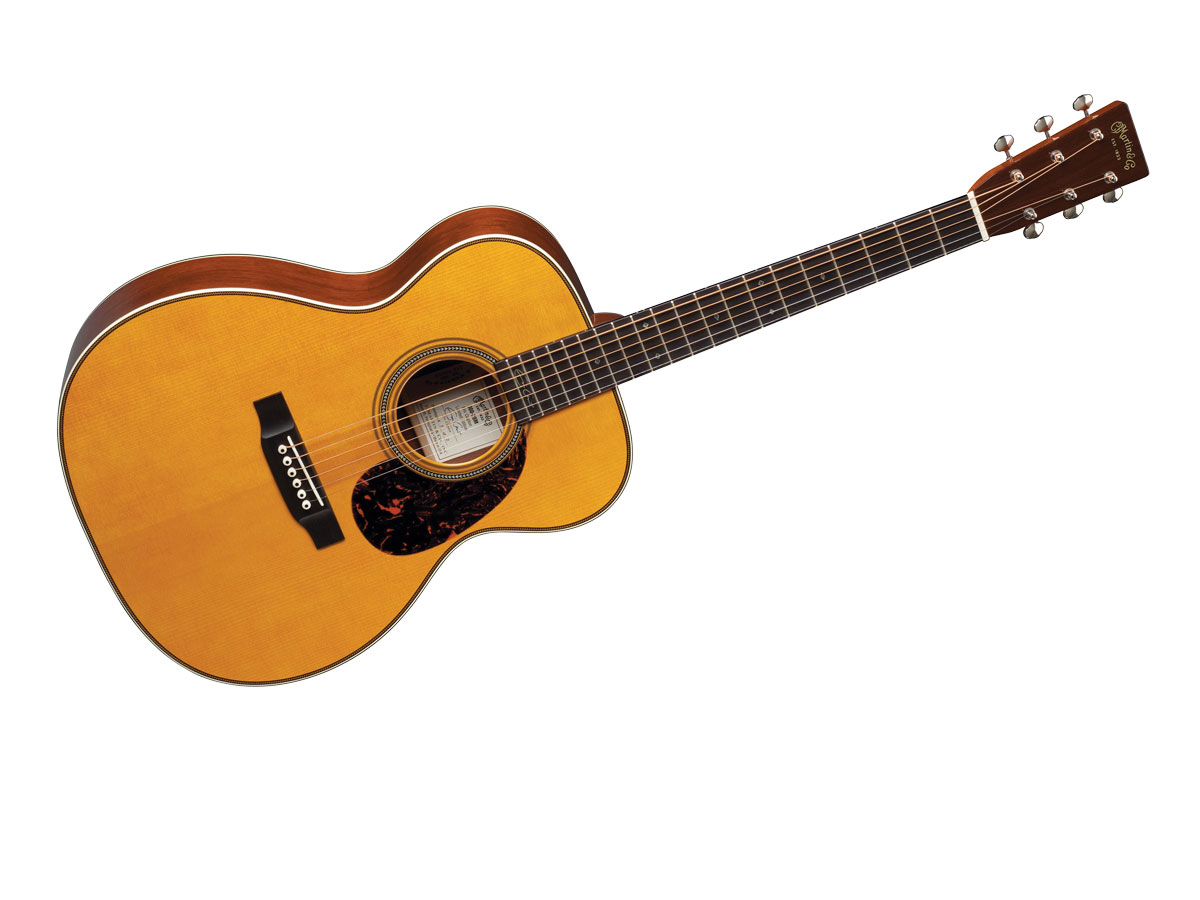
Clapping eyes on a Clapton
Why did you opt for the electric root this time? What did you like about using those instruments?
"I think the key thing is that I’ve never been overly precious about guitars. I was on the ['73 Goldtop] Les Paul through most of the winter, but I’m flippant and I change my mind quite a lot, so that was what I was playing at the time.
"The reason I didn’t play, like -on the //Burgh Island// EP there’s a lot of Telecaster on that -the reason I didn’t play a Telecaster this time was that the neck was broken, it was slightly twisted and I never got it fixed."
What other gear were you using?
"My guitar takes up so many different frequencies, it makes it hard to mix"
"There’s a lot of acoustic on there. Martin have always been really good to us, I guess because of the acoustic nature of the first record, so I’ve always mainly played dreadnoughts and I’ve got a really nice 70s D-28. That’s always been my go-to, but I think maybe I use them wrong.
"I’ve just got this little Clapton [points to a Martin 00028 Eric Clapton - pictured], so the fingerpicking parts are a bit punchier live, because the D-28 kind of drones out. My guitar takes up so many different frequencies, it makes it hard to mix.
"Then I just run through the Strymon Brigadier - that’s the delay pedal I use - and the Strymon reverb [Big Sky], then it’s the Way Huge Green Rhino overdrive. I’ve just got that to try and replicate it live, because basically we had amps that, live, were just going to blow up. [Amp-wise], pretty much the entire record was through a Fender Deluxe."
So we’re hearing amp’d-up acoustic, too?
"Yeah, that’s what a lot of it is, and it’s amazing how similar that sound can be to a Les Paul, just the sustain and stuff when you throw it through a load of pedals and an amp.
"I think there were definitely times when I was trying to get a hollowbody sound, a Gibson ES-335 sound or something. I didn’t realise that at the time, but I’ve played a few recently and I love the sound of those things. But I’ve just never had one of those before and I’ve never played them."
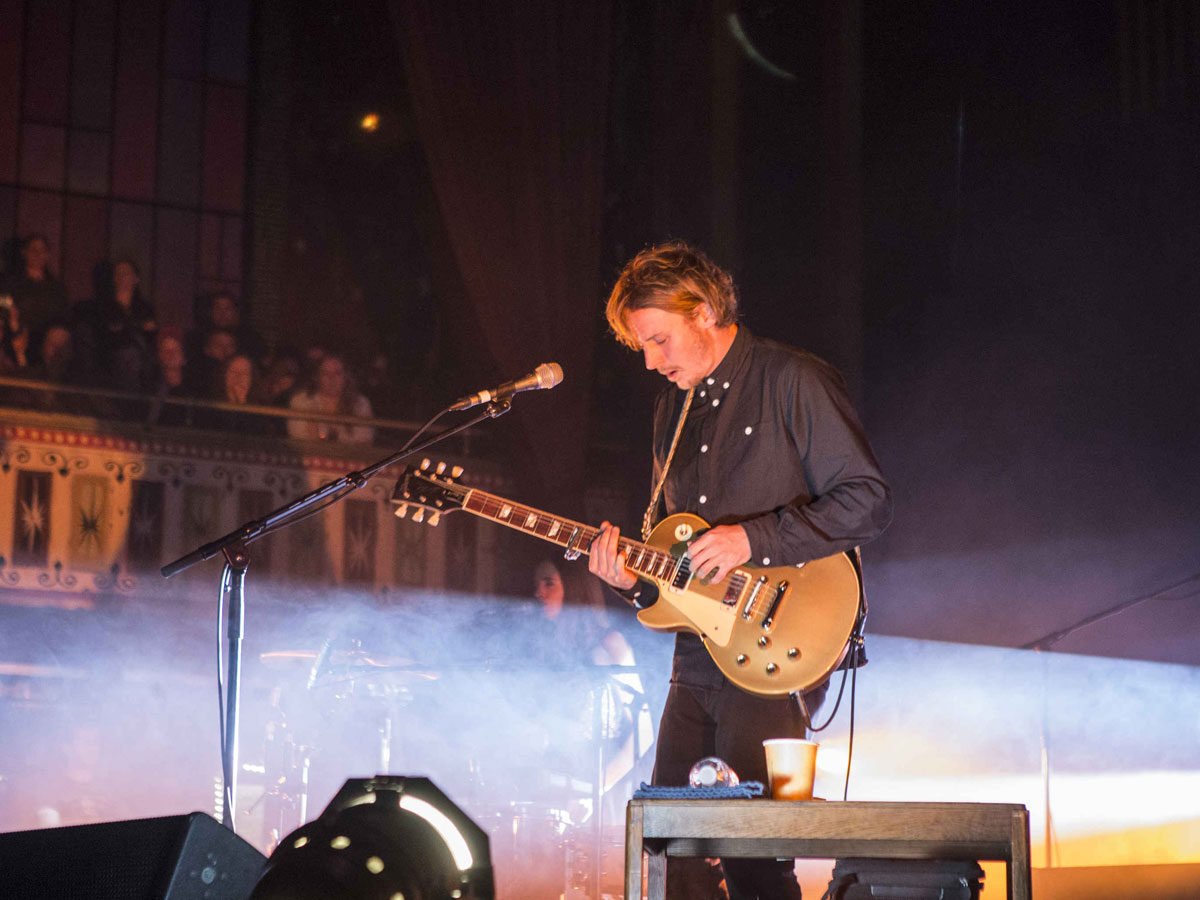
Guitar orchestras
You’re still getting percussive noises from guitars, but you’re using delays to get there now. Where does that need for percussive playing come from?
"I guess it’s something I’m quite addicted to. It’s probably why I’m a huge fan of John Martyn: he’s always been quite percussive on the guitar. Maybe it’s just a case of trying to make a whole song before anybody gets there.
"The orchestral side came because we wanted to make something big and noisy, but it ended up being loads of guitars"
"I listen to other people’s stuff and, more and more, you realise how much is layered and how many different guitar parts there are. I always thought that was one person when I was a kid listening to records, so it’s just trying to play as much as possible.
"I’m fascinated by how instinctive rhythm is, though. It’s weird, because there are parts of the album that got really rave-y and, not particularly knowing why [at the time], that just felt really good."
Your use of guitars is almost orchestral at times. What was the key to arranging those?
"There were a lot of conversations about guitars, but we didn’t have a lot [at our disposal]. If we’d been in London and had an orchestra there, then we probably would have put strings and shit all over it. Instead, the orchestral side came because we wanted to make something big and noisy, but it ended up being loads of guitars.
"I think my favourite thing about the record is that there are no elaborate top lines and no-one shows off on the record, and there are players on there that could. I think that’s a credit to everyone that we have that restraint.
"Like the bends on I Forget Where We Were, that build-up. That could have been a guitar solo, but it engages you more because all of a sudden there are new layers to it."
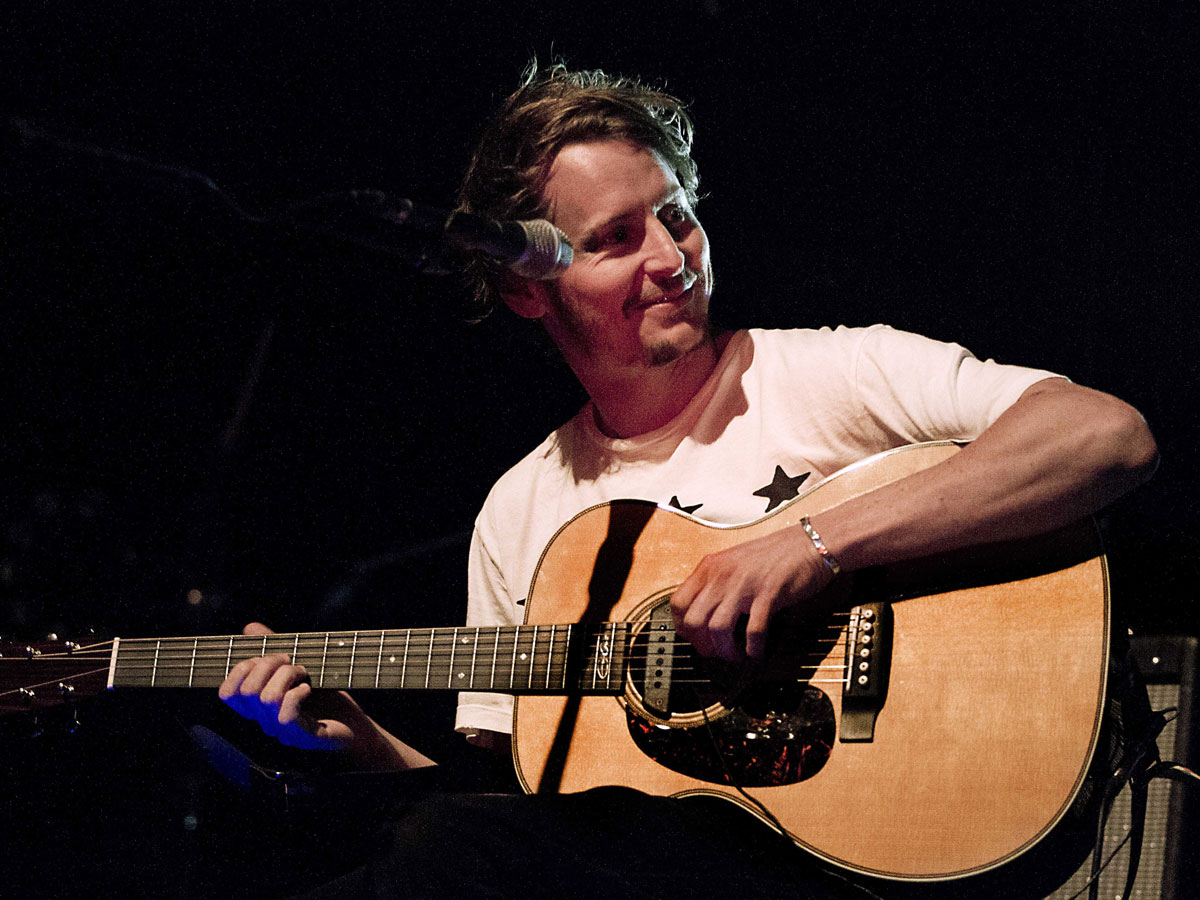
Snapshots
In Dreams is one of your most accomplished guitar compositions. How did it come about?
"That was getting a new guitar. I bought a guitar when I was in Austin. It was a little 1928 parlour guitar and it just had a few songs left in it, really. That came to me pretty quick, on that guitar. I think it gives you a real freshness having a new guitar, or even just a new set of strings.
"It’s a more demanding listen, for sure. There’s been concerns about the tone of it. It doesn’t suit anything right now"
"When you’re playing guitar, it’s the tiny little nuances that make the difference. For me, obviously, tunings is a huge one. That song’s in a subtle drop D. There were a few changes, but that was one where the guitar probably did more work than I did."
We’re way past the era of Dylan, but were there concerns from the label or anyone about ‘going electric’ or the emotional tone on I Forget Where We Were?
"Yeah, there’s been a lot of conversations about the content of it. It’s a more demanding record, it’s a more demanding listen, for sure. So, yeah, there’s been concerns about the tone of it. It doesn’t suit anything right now, I don’t think, and maybe that’ll be a mistake, or maybe it’ll be a talking point, a good thing.
"For us, it was just about making the record we wanted to make over that winter and we’d deal with it afterwards. You’ll probably see tonight, people will shout for the old record. They’ll be like, ‘What are you doing? It’s depressing!’ [laughs]"
People forget that albums should be snapshots. They should be dated as soon as they’re done, because that’s what it is: a record...
"Totally. I think that’s why I don’t talk about the emotional spectrum of what happened over the winter, and before that, because it’s like, well, that was then and tomorrow I’m going to be a completely different person. Tomorrow, I might not even talk to you, or we might go boozing all day. Most of the time it just depends on the weather, or whatever the fuck the moon’s doing!"
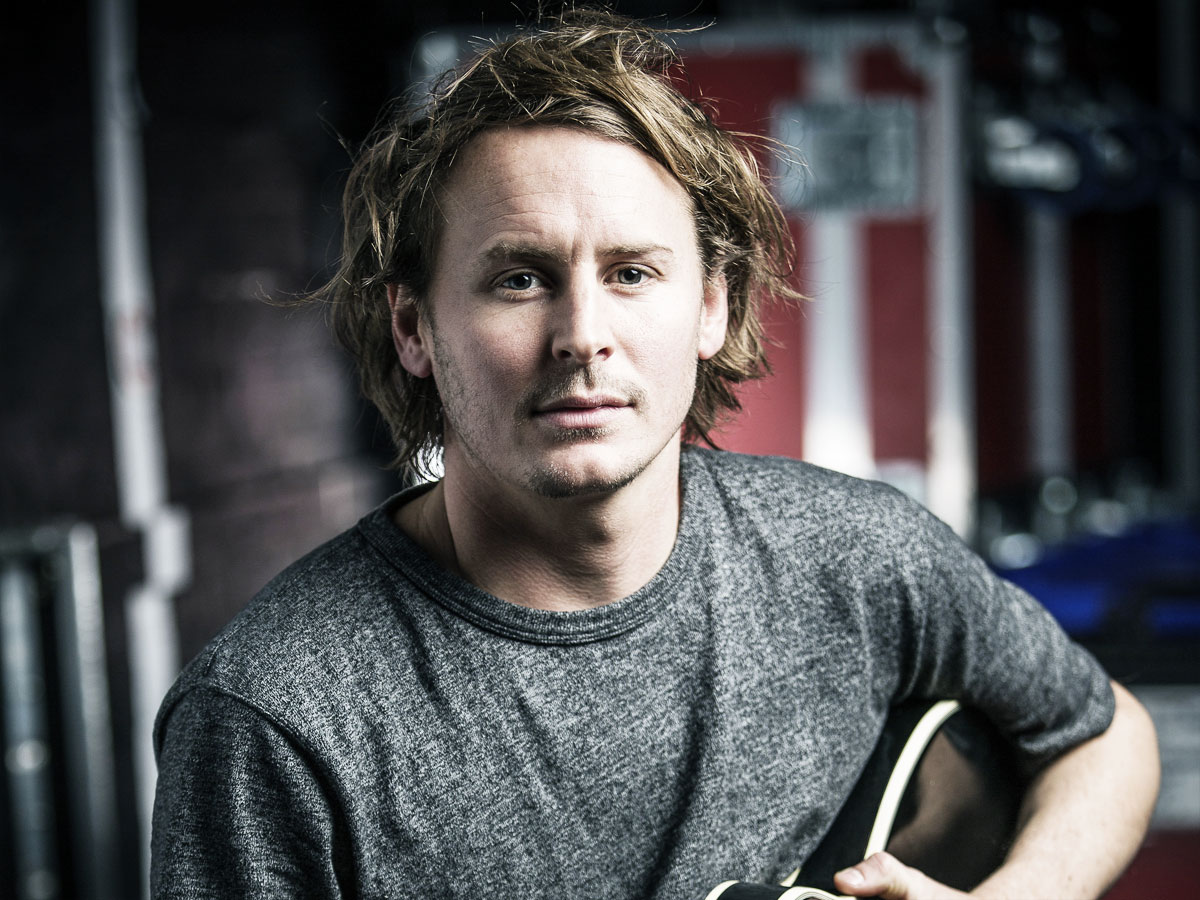
Going through the emotions
You said at that at the end of the last album cycle you felt like "an entertainer going through the motions". How do you plan to avoid that this time?
"The thing is we are all entertainers going through the motions, so it’s unavoidable, but you can find levels of enjoyment in that. You realise that people do things differently to each other and, more and more, I realise that there’s no right or wrong. You can be a pop star and singing cabaret, and the entertainment of it is your flamboyance, it is your attitude. But I think for us it’s enjoying the [musical] interaction and the tension...
"We’re making music and, as old as music is, you’re still just someone who’s making noises. It’s f**king daft what we do, isn’t it really?"
"I’ve got no qualms with being up there and entertaining people. We’re making music and, as old as music is, you’re still just someone who’s making noises. It’s fucking daft what we do, isn’t it really? It’s fucking daft that you write about it! But that’s fine, that’s what we do."
What makes an inherently shy, private person carry on putting themselves in a vulnerable position on stage?
"I feel like it’s a challenge. Every day is a challenge. I don’t know if I’m particularly shy. I heard a good quote the other day, which was, ‘We never really grow up, we just learn how to act in public more.’ So for me, it’s been a fascinating journey of learning how to act in public, when the public are looking at me all of the time.
"And to realise that there is no right or wrong way about that - and to get over the doom when you’ve been a bit of a dickhead and said things that you wouldn’t want someone to hear! So I don’t know if I’m particularly shy, I just think that more and more I choose whether I say anything."
Has there been an element of exorcism with I Forget Where We Were?
"I don’t know. Music’s always been that thing for me. That’s my time and my place for it. So in many respects it is, but there are different reasons why people write songs and different reactions they want to get.
"Music is an open book and entertainment is an open book. There is a little time and a place for all of us. For me, I felt like I needed to write about a few things and I did and it is really personal, but that’s just my vibe on what we do. Maybe it comes down to not being a huge extrovert, but that’s my little corner of music.
"I think I get pegged wrong, because the music is thought-provoking, people think I have to be serious all of the time. You don’t have to be serious at all. I find that quite funny. I don’t know if it was an exorcism. It was just a reflection on a winter, that’s all."
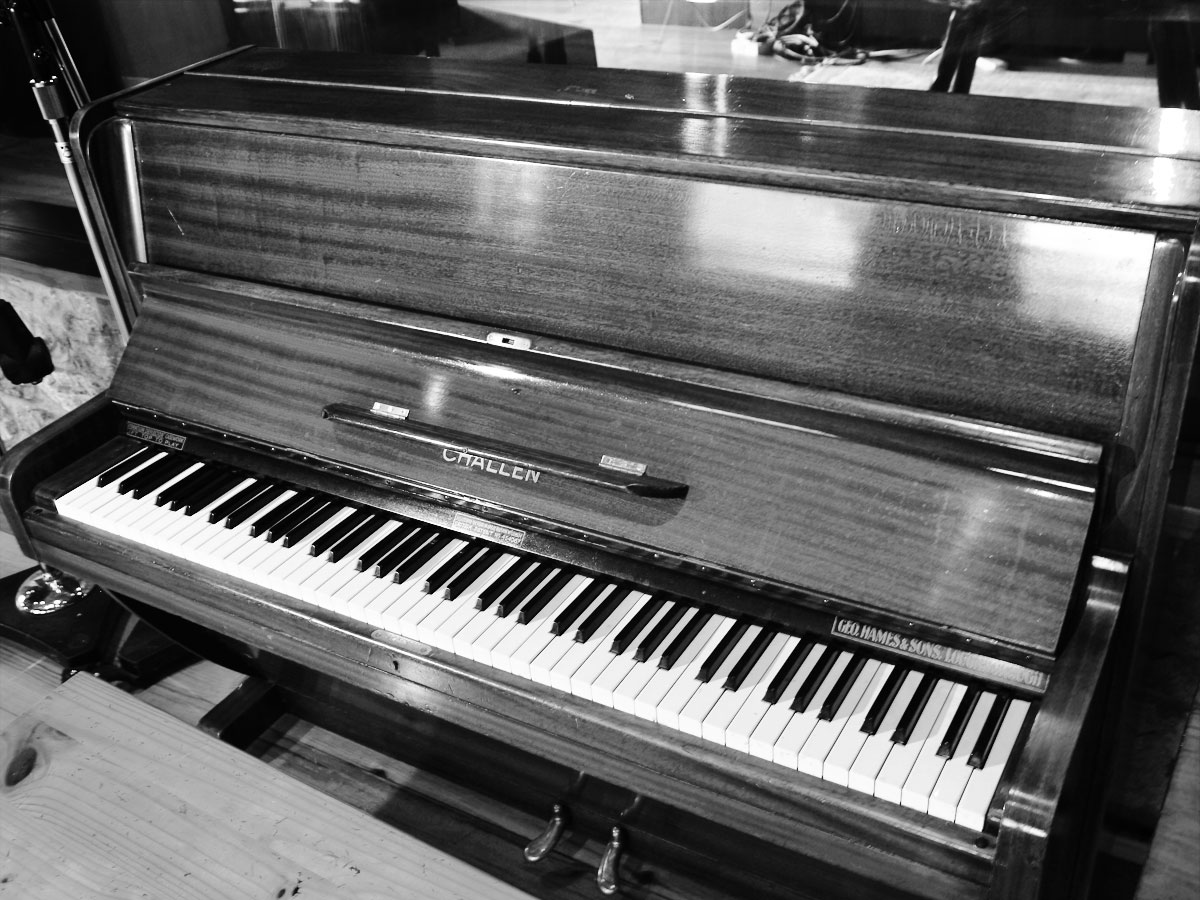
Tickling the ivories
Ben’s pretty utilitarian with his gear - the studio and live worlds blur when it comes to his rig. But when he makes departures, he doesn’t do half measures...
"There was a piano reverb thing that we wigged out on for ages,” says Ben, recalling the I Forget Where We Were sessions.
"The End Of The Affair, the guitar part is an amp through the piano and the sustain is the actual piano surging through"
"We took the top off a piano and stuck the amp in it and the amp was just going fucking bonkers. You’d play through it and it resonated through the piano. The strings were still in it and it was this incredible phenomenon where whatever chord you played, the piano would choose which notes resonated.
"It’s a real thread through the record. You know The End Of The Affair? The beginning guitar part is an amp going through the piano and the sustain and the after-surge of the chords isn’t the part, or the reverb of a part, it’s the actual piano surging through. It was quite beautiful, just having something else have control. There’s probably a science to it, but I’m fucked if we know!"
Matt is a freelance journalist who has spent the last decade interviewing musicians for the likes of Total Guitar, Guitarist, Guitar World, MusicRadar, NME.com, DJ Mag and Electronic Sound. In 2020, he launched CreativeMoney.co.uk, which aims to share the ideas that make creative lifestyles more sustainable. He plays guitar, but should not be allowed near your delay pedals.


